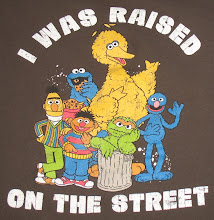..
.
Ever get into a really good discussion on writing where others have opinions and ideas and seem wanting to really dig deep into the crafting of fiction... and then at some point past the surface levels, when questions come up about what makes fiction good, the discussion turns dismissive as if people are personally defending things they've written instead of discussing fiction as a whole?
Well, that's ONE opinion, but I think a ton of adjectives and adverbs make a piece more interesting. It's like they're the herbs and seasoning to spice up a bland manuscript!
Well, that's ONE opinion, but I think opening every story, scene or chapter with a long passage of unattributed dialog is a good way to get the reader interested, because the reader is probably thinking 'who the heck is even saying this' which means they'll really want to keep reading so they can find out!
Well, that's ONE opinion, but I see nothing wrong with the narrator addressing the reader directly. After all, I am the one telling a story here, so why shouldn't I occasionally interject to make a point or two for the reader if I want?!
Okay, my examples are a bit ridiculous... right? Nope. I've seen these arguments time and again. And I don't want to poo-poo anyone's opinions or advice (except for 'show, don't tell' which I still believe is all a crock of shit). But, at the same time, sometimes even the best intended or most bandied about advice, beliefs or opinions are just bad. Yeah, I know, "but but but it's all just SOOOOO subjective, right?"
No. Hell no.
People argue subjectivity all day long on writing forums, and even in writing classrooms where we all like to pretend we've solved the mysteries of fiction. I like this, I don't like that, nobody can predict what a reader may want, it's all just luck of the draw, too subjective. Sure, nobody can predict when a [really well written nod nod don't sue me] series such as Twilight may strike a chord and make it big. But all fiction is crafted. All writers guided by principles and rules, even if they simply made them up themselves.
Sure, sometimes readers flock to poorly written crap they like; sometimes books that nobody seems to want to read win awards. It's a perplexing industry, at times. But one thing we can actually control is what we write, and how we write it. So here's an idea that might be revolutionary: write something well, that--wait for it--people also want to read!
There seems to be a weird genre vs literary divide. One side pretends no literary stories are ever entertaining, the other pretending no genre stories are ever well written. Well, as I pointed out in an infamous post that has since been deleted because everyone's panties got so bunched it took the jaws of life to un-wedgie them: both sides of these stereotypes and biases are wrong and ignorant.
The fact is, most successful writers--taking into account variances for random fads or luck--are, or at least attempting, to both write well and be entertaining. You can pick up many best sellers and objectively analyze the reasons people enjoy them, and dust off those literary books and find enjoyable, entertaining stories.
Like Michael Chabon. Just do what he does. He wins a Pulitzer, is as hoity-toity literary as anyone could ever dream of being, then later wins Hugo and Nebula awards as well. In short, his reader-base is huge. Do you really think he somehow managed to unlearned everything he ever thought he learned writing literary fiction so he could become popular. I'm pretty sure he just learned to write stories that were more entertaining and appealed to a wider audience, and was still deeply involved in the craft of creating compelling, moving fiction. And he was in control of his writing every step of the way, not leaving it all up to luck or subjectivity.
Subjectivity is most important when considering the reading of your story, not the writing. And good luck trying to write for an audience if you don't already have one (Stevie King, to his credit, could shit inside a hollowed-out hardcover and it would still be a best seller). But before you've established yourself, while you're still figuring out the best way to craft your fiction, consider that perhaps subjectivity isn't the strongest rack on which to hang your hat. There are more stable, quantifiable moves you can make as a writer to strengthen your work.
Look at your favorite stories and try to figure out what all of them manage to do. One may be third person, another first, but are they both connecting you to a character's experiences? One may have long, flowing paragraphs, another may be minimalism. At it's finest. Sentence fragments. But are they both free from confusion, delivering specific details and descriptions that are interesting and relevant to the meaning of the story?
Study enough fiction and you'll start to realize that all those stories you seemed to just happen to love in a purely subjective, unpredictable way, are actually all consciously and deliberately crafted with quantifiable techniques and methods in mind. Your favorite author's didn't simply hope you would happen to like them. They made choices to ensure you would! Every step of the way craft was involved, guided by rules and methods and techniques--the things many writers want to discount in the name of subjectivity--all working to enable the subjective experience. Is it really that far-fetched to think we shouldn't all have to do the same?

No comments:
Post a Comment